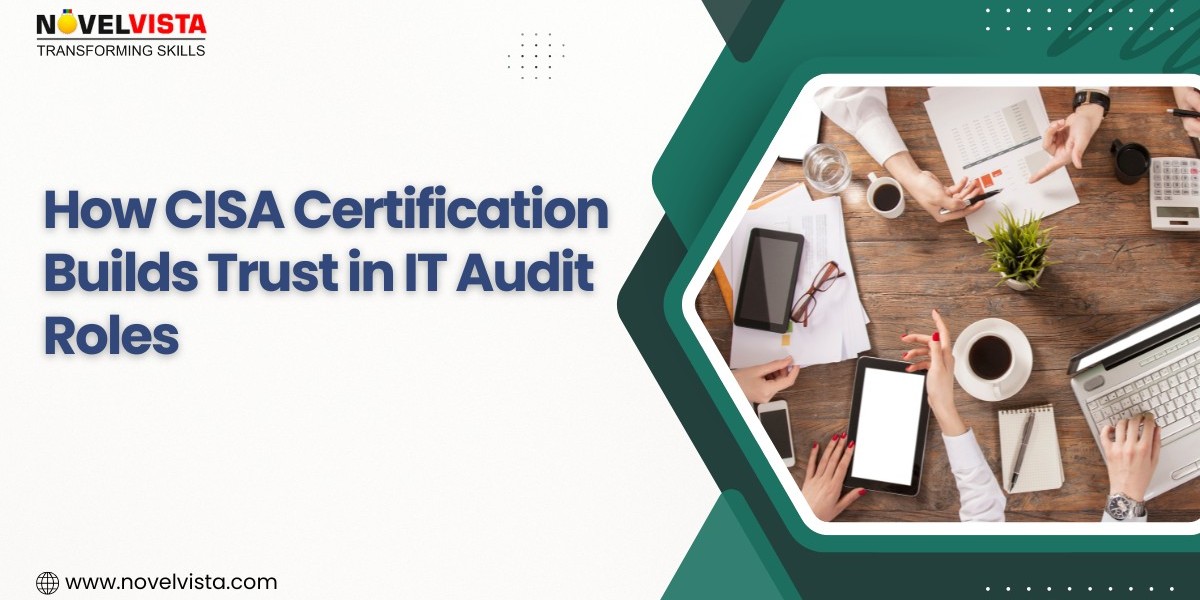In today’s fast-evolving digital world, organizations rely heavily on robust information systems to function efficiently and securely. With increasing cybersecurity threats and compliance requirements, the role of IT auditors has become more critical than ever. Among the various qualifications available, the CISA Certification stands out as a globally respected credential that builds trust in IT audit professionals and their ability to safeguard an organization’s digital infrastructure.
CISA Certification is not just a badge of knowledge—it's a mark of reliability, integrity, and professional competence. Let’s explore how this certification cultivates trust and elevates the value of IT auditors in any organization.
1. Globally Recognized Standard of Competence
CISA is offered by ISACA, a leading global association for IT governance professionals. The certification is recognized across the globe and sets a standardized benchmark for assessing an IT auditor’s capabilities.
Whether you're working in a multinational corporation or a government agency, CISA certification signals to employers and clients that you possess the knowledge and skills necessary to manage, assess, and control IT systems. This universal acceptance establishes a strong foundation of trust in your professional capabilities.
2. Demonstrates Deep Domain Knowledge
The CISA exam covers five critical domains of IT auditing, including:
- Information System Auditing Process
- Governance and Management of IT
- Information Systems Acquisition, Development, and Implementation
- Information Systems Operations and Business Resilience
- Protection of Information Assets
By mastering these areas, CISA-certified professionals demonstrate in-depth understanding of both technical systems and business processes. This comprehensive knowledge reassures stakeholders that the IT auditor is well-versed in identifying risks, ensuring compliance, and optimizing controls—key aspects that enhance trust.
3. Promotes Ethical and Professional Conduct
Trust is built not only on skills but also on ethics and integrity. ISACA requires all CISA-certified professionals to adhere to a strict Code of Professional Ethics. This code emphasizes:
- Honesty and objectivity
- Confidentiality of information
- Continual improvement of professional competence
By committing to these ethical standards, CISA professionals assure employers and clients of their unbiased judgment and responsible conduct—both vital for the credibility of audit reports and findings.
4. Validates Practical Experience
Unlike many certifications that only require an exam, CISA has a stringent requirement for relevant work experience. Candidates must have at least five years of professional experience in information systems auditing, control, or security to earn the certification.
This experience-based requirement ensures that certified individuals not only understand theory but have also applied their knowledge in real-world scenarios. Organizations value this practical exposure because it shows that the auditor can handle complex challenges and deliver reliable solutions.
5. Boosts Stakeholder Confidence
When an auditor holds a CISA Certification, it instills confidence among board members, regulatory bodies, and business leaders. It sends a clear message: the organization’s IT audit function is managed by someone who understands risk management, compliance, governance, and internal control processes at a professional level.
This is especially important when organizations face regulatory scrutiny or undergo third-party audits. A CISA-certified auditor brings an added layer of assurance that systems are being evaluated competently and objectively.
6. Supports Career Growth and Leadership Roles
Trust also grows internally—within teams and leadership circles. A CISA-certified professional is more likely to be seen as a valuable advisor rather than just a technical auditor. With enhanced skills and credentials, such professionals often move into senior roles such as:
- IT Audit Manager
- Information Security Officer
- Compliance Analyst
- Risk Consultant
- Chief Information Security Officer (CISO)
This upward mobility reflects the organization's trust in their expertise and leadership capabilities.
7. Continuous Learning and Relevance
CISA requires certified professionals to maintain their certification through Continuing Professional Education (CPE) credits. This ensures that they stay updated on evolving technologies, compliance laws, and best practices in IT auditing.
By committing to lifelong learning, CISA professionals remain relevant in the face of rapid change—something that builds long-term trust with employers and clients alike.
Final Thoughts
In the field of IT auditing, trust is everything. From evaluating internal controls to identifying risks and ensuring regulatory compliance, the IT auditor plays a crucial role in maintaining the integrity of organizational systems. CISA Certification not only validates technical and audit knowledge but also serves as a reliable mark of ethical, experienced, and competent professionals.
Whether you're an aspiring auditor or an organization seeking to strengthen your governance structure, investing in CISA certification is a step toward enhanced credibility, accountability, and trust.







